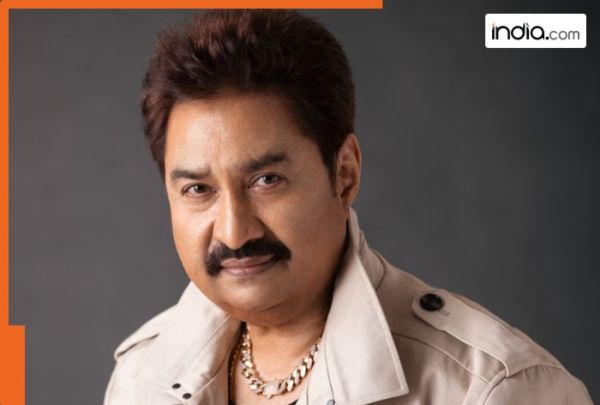
Legendary playback singer Kumar Sanu known for his timeless melodies from the 1990s has moved the Delhi High Court to safeguard his personality and publicity rights including his voice name image and signature singing style from unauthorised use particularly in the age of AI-generated content. The plea filed through advocates Shikha Sachdeva and Sana Raees Khan will be heard by Justice Manmeet Pritam Singh Arora on Monday October 14 2024. It aims to ensure that no individual brand or online platform can exploit the singer’s persona or artistic identity without consent. According to the petition the move follows several incidents in which AI-generated content and online imitations of Sanu’s voice and songs surfaced on social media platforms. Many of these have reportedly been monetised without authorisation misleading the public and misrepresenting his artistic legacy. What exactly is Sanu’s petition demanding? The plea specifically seeks a permanent injunction to restrain individuals or companies from using Kumar Sanu’s “voice vocal techniques interpretations images caricatures photographs and signature style” for commercial gain. It claims that such unauthorised acts not only amount to a violation of his moral and artistic rights under the Copyright Act 1957 but also lead to false endorsements and misleading public perception. The petition reads Such merchandise and audios/videos of the plaintiff generate revenue for the defendants as they are uploaded and streamed on social networking websites including but not limited to Facebook Instagram and YouTube which generate revenue based on the number of clicks or views to a particular image/video. It further adds that these activities could “dilute the artist’s legacy” and “damage his reputation” making legal intervention necessary. How has AI contributed to this problem? With the rise of artificial intelligence and deepfake tools the entertainment industry has witnessed a growing trend of voice cloning and visual imitation. Artists like Kumar Sanu have become unintentional victims of this wave with their voices being digitally replicated to create fake songs performances and videos — some even shared in a mocking tone. The petition highlights that AI-generated GIFs audio clips and videos are being circulated online using the singer’s identity for entertainment or profit without his approval. Many of these according to Sanu’s team distort his artistic image and could mislead fans into believing he endorsed or performed them. How are other celebrities handling similar issues? Kumar Sanu’s legal move aligns with a broader trend among celebrities safeguarding their image and voice rights in the digital era. In recent months prominent figures like Aishwarya Rai Bachchan Abhishek Bachchan Karan Johar Akkineni Nagarjuna Suniel Shetty and journalist Sudhir Chaudhary have approached courts to restrict unauthorised digital reproductions of their likeness. Many have already obtained interim injunctions protecting their image and reputation from misuse particularly against AI-generated content or deepfakes used in advertising or social media content without consent. Sanu’s case marks one of the first major instances of a veteran playback singer seeking similar protection in India’s legal system reflecting how technology’s rapid growth is forcing the entertainment industry to rethink boundaries of consent imitation and creative ownership. The petition will be heard in the Delhi High Court on October 14 where Justice Arora is expected to review Sanu’s claims and decide on whether to issue an interim injunction preventing the misuse of his name and likeness. If granted the order could set a legal precedent for how voice artists and musicians can protect their identities in the age of generative AI a move that may reshape copyright and publicity rights laws in India. Highlights Kumar Sanu seeks legal protection for his voice image and signature singing style. The plea addresses AI-generated voice clones and online misuse of his persona. The case may set a new precedent for personality rights in India’s digital age.
-
Your winter clothes will be 'instantly' freshened up with 50p hack

-
I tried 7 toilet cleaners from Aldi, M&S and Tesco-the best was £1 cheaper than Harpic

-
From Right To Information (RTI) To Right To Ignorance: The Fading Spirit Of Accountability

-
Drivers sent £1,000 fine warning from October

-
Jennifer Aniston's 29p superfood lunchtime 'secret' to keeping youthful glow
